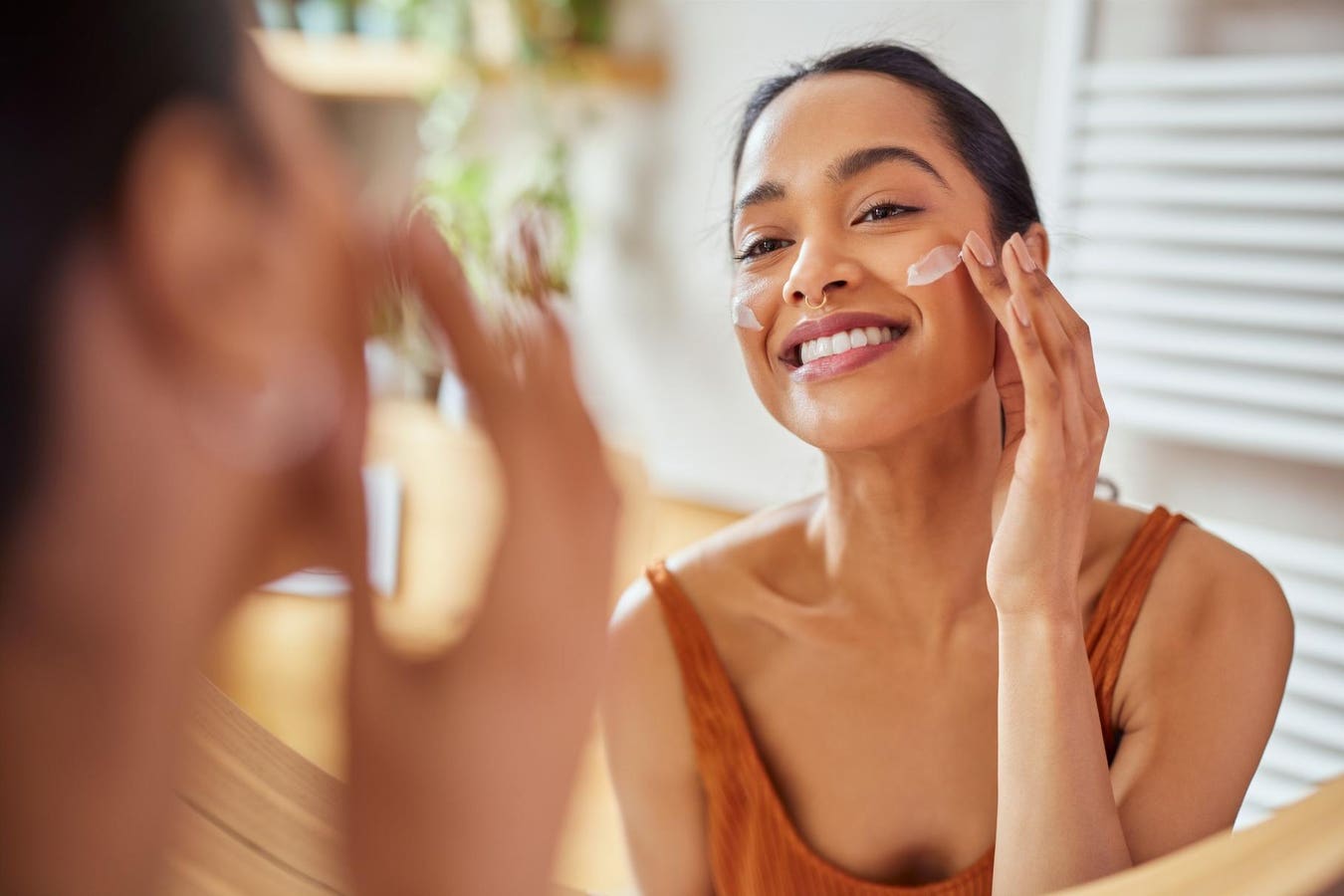A woman applies moisturizer.
getty
Novel skin care routines and anti-aging experts are rampant these days on social media, especially with the rise of “skinfluencers.” The internet is home to some of the most viral trends— ranging from using placenta based products to wearing LED face masks— some which work and some that have mixed results.
For example, Dr. Elaine Kung explains how she became famous on TikTok for describing an encounter with a patient who followed a social media trend to not wash her hair and instead, only apply olive oil. Dr. Kung explained to the patient that there was no basis to this claim, but rather, by never washing her hair, the patient was simply trapping air pollutants and contaminants in grease, thereby also increasing the proclivity for severe acne.
Another common example that is often falsely promoted online is that higher SPF numbers on sunscreen are always better for the skin. However, dermatologist and scientist Dr. Yoram Harth writes that the main purpose of sunscreen is to block harmful UV rays from the sun. SPF 30 blocks approximately 96.7% of UVB rays, while SPF 50 blocks 98% of UVB rays. However, the extra 1.3% of protection “comes at the cost of additional chemicals, potentially making higher SPF sunscreens less skin-friendly,” Dr. Harth explains. The increased chemical exposure can cause more acne, less skin tolerance and a higher proclivity for skin reactions, meaning that individuals may shy away from actually using the product consistently.
Some frequently promoted ideas can also be dangerous. For example, many social media pundits claim that darker skinned individuals require no sunscreen. Dr. Zeena Nawas, Assistant Professor of Dermatology at Baylor College of Medicine, explains that this is simply not true: “populations with darker skin can and do get sunburned, though it may take longer exposure to the sun compared to those with lighter skin. Although sunburn on darker skin might not always be as visibly red, a person will still experience pain and peeling. If left unprotected, people with darker skin will still experience premature aging, sunburn and an increased risk of skin cancer.” Indeed, the incorrect notion of dark skin being a protectant against harmful sun rays can promote a false sense of security and can lead to a higher risk of skin cancer, one of the most dangerous and common causes of mortality globally.
Nevertheless, not everything that is out there is necessarily false; indeed, there are many natural remedies and home practices that different cultures practice that may be effective to a certain degree for specific uses or needs. These are often based on experiential learning and anecdotal evidence.
As for strictly evidence-based practices, most dermatologists advise keeping routines very simple in order to ensure healthy aging and skin, and recommend the consistent use of moisturizer and sun-screen. The Mayo Clinic also describes that “tretinoin creams [are]
used to treat fine wrinkles, dark spots, or rough skin on the face caused by the damaging rays of the sun. It works by lightening the skin, replacing older skin with newer skin, and slowing down the way the body removes skin cells that may have been harmed by the sun…However, it does not completely or permanently erase these skin problems or greatly improve more obvious changes in the skin, such as deep wrinkles caused by the sun or the natural aging process.” Of course, individuals should and have to consult a trained physician on the exact combination that is optimal for them, taking into account their other medical conditions, specific skin needs and personalized health requirements. Many products may have side effects, and thus, consumers must consult a trained medical professional. Without doing so and by blindly following anecdotal evidence, individuals run the risk of devastating and lasting damage to their skin.
